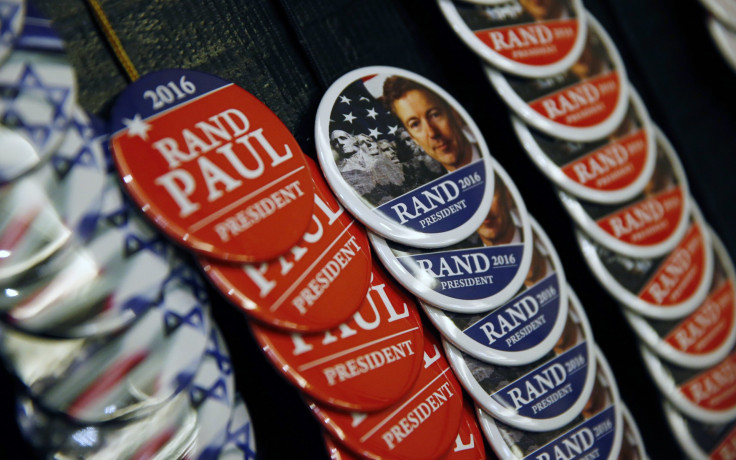Rand Paul Donations Exceed $24 Per Second; Campaign Fundraising Effort Includes Bitcoin

Donors sent Rand Paul an average of $24 every second as the Republican senator from Kentucky announced his candidacy for president Tuesday. Paul’s fundraising strategy, known as the “moneybomb,” is directly inspired by the one his father used in the process of funding his own presidential campaigns.
Paul announced Tuesday his supporters could prove his doubters in the government and media wrong by pledging their “most generous contribution to my ‘Stand with Rand’ moneybomb.” The numbers were broadcast on the front page of his website through the day, increasing steadily to $228,000 in about six hours. An examination by the Washington Post found the hour when the most money came in was between 12:30 p.m. to 1:30 p.m., which coincided with Paul’s announcement speech.
“Today I announce with God’s help, with the help of liberty lovers everywhere that I’m putting myself forward as a candidate for president of the United States of America,” Paul said, adding both Democrats and Republicans are responsible for soaring national debt. “Government should be restrained and freedom should be maximized.”
Paul’s website also shows the candidate is accepting donations in bitcoin as well as from credit cards and PayPal. The cryptocurrency has been associated most frequently with libertarianism, a movement with which Paul’s policies are often compared.
He’s the first presidential candidate to announce he’ll accept bitcoin donations since the U.S. Federal Elections Commission announced regulations forcing candidates to register bitcoin donors in largely the same way they do donors who provide dollar support.
Both the moneybomb and the bitcoin donations are reminiscent of the failed presidential campaigns once launched by his father, former U.S. Rep. Ron Paul, R-Texas. The elder Paul is even more associated with libertarianism than the senator and first popularized moneybombs in 2007.
© Copyright IBTimes 2025. All rights reserved.





















